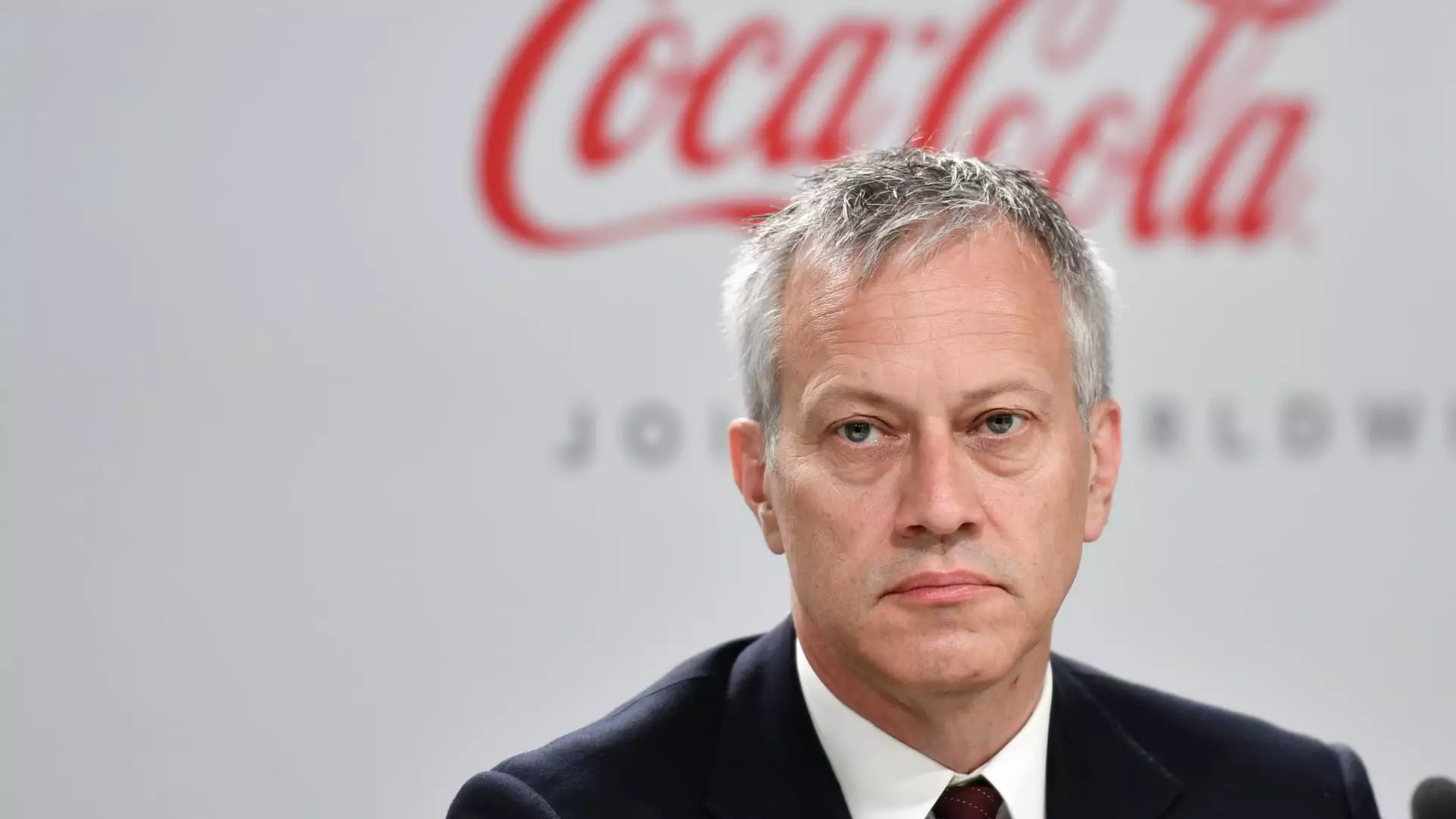The symbiotic relationship between Coca-Cola and McDonald’s has been a significant factor in the success of both companies. James Quincey, CEO of Coca-Cola, recently spoke to investors during the third-quarter earnings call, addressing concerns about an E. coli outbreak connected to McDonald’s Quarter Pounder burgers. For almost seven decades, Coca-Cola has been a crucial beverage partner for McDonald’s, with its products dominating drink menus across fast-food establishments globally. This partnership has become integral to their shared identity, but it also raises the question: how vulnerable can Coca-Cola be to crises outside its domain, particularly those affecting its largest customer?
In light of the outbreak that has affected 10 states and resulted in 49 cases, including one fatality, Quincey assured stakeholders that Coca-Cola does not anticipate a severe impact on its sales. The outbreak has cast a shadow on McDonald’s reputation and, in turn, raises concerns about how that could affect Coca-Cola’s bottom line, as McDonald’s continues to be the company’s largest restaurant customer.
Following the outbreak announcement by the Centers for Disease Control and Prevention (CDC), McDonald’s has acted swiftly by suspending the distribution of potentially contaminated ingredients, namely slivered onions and fresh beef patties used in the Quarter Pounder. Such decisive action reflects an attempt to maintain trust with customers, which is essential in crisis management. While McDonald’s has temporarily removed the Quarter Pounder from its menu in affected regions, the key question is whether these measures will be sufficient to preserve brand loyalty amid growing public concern over food safety.
Coca-Cola has recognized its role as a major partner of McDonald’s and has voiced commitment to assist in any way possible during this challenging period. This proactive relationship may mitigate potential harm to Coca-Cola’s sales, as customers might still associate the brand with reliable and enjoyable dining experiences, despite McDonald’s current challenges.
The E. coli incident occurs at a time when both Coca-Cola and McDonald’s face broader economic pressures as customers curtail spending at restaurants. With mounting inflation and shifting consumer preferences, dining out has become less frequent for many American households. This economic environment has initiated a cascade of promotional strategies from fast-food chains, including discounted meals, aimed at luring back budget-conscious diners. Such initiatives could bolster customer turnout even during a health crisis.
Despite uncertainties surrounding consumer behavior in light of the outbreak, Coca-Cola reported third-quarter earnings that exceeded Wall Street’s expectations, bolstered by higher prices. This performance suggests that while overall consumer spending may be sluggish, Coca-Cola’s brand strength and pricing strategy have provided a buoyancy that could help it weather the storm.
Looking forward, the future of Coca-Cola and McDonald’s will likely depend on how effectively both companies manage the current crisis and respond to evolving consumer sentiments. Their long-standing connection has proven resilient against various challenges, yet it remains to be seen whether the E. coli situation will have lasting effects on brand perception.
As Coca-Cola plays a critical role in advertising McDonald’s combo meals, the company’s continued support during this crisis will be instrumental in reinforcing consumer confidence in both brands. Ultimately, despite the formidable challenges posed by the outbreak and a soft dining atmosphere, the relationship between Coca-Cola and McDonald’s may evolve, emphasizing the importance of agility, resilience, and restoration of trust in the potential recovery journey ahead.
While the E. coli outbreak presents a significant hurdle for McDonald’s, the enduring partnership with Coca-Cola and strategic crisis management may be key factors in navigating these turbulent waters, ensuring that both companies can emerge intact and ideally stronger from the experience.


Leave a Reply